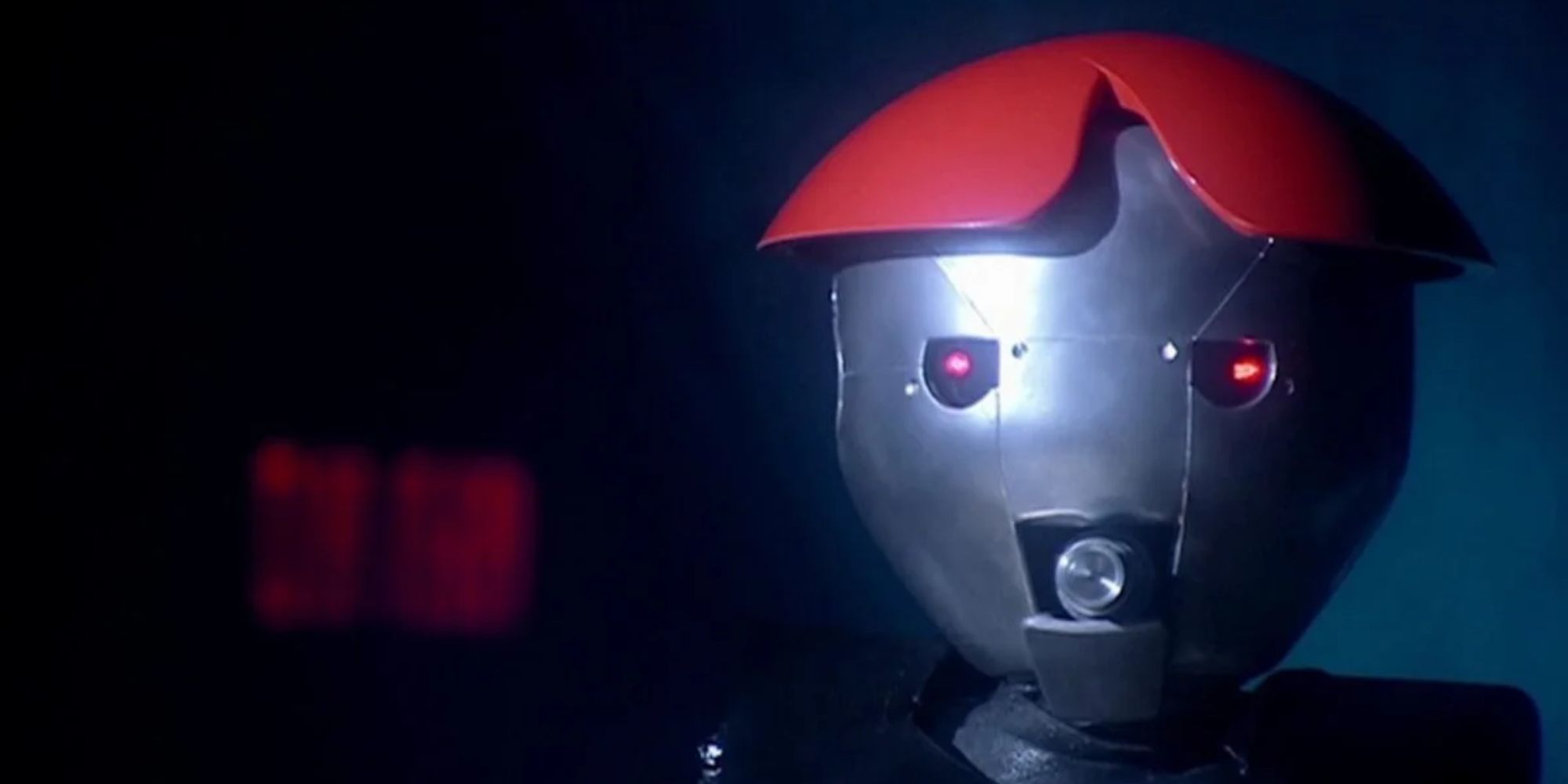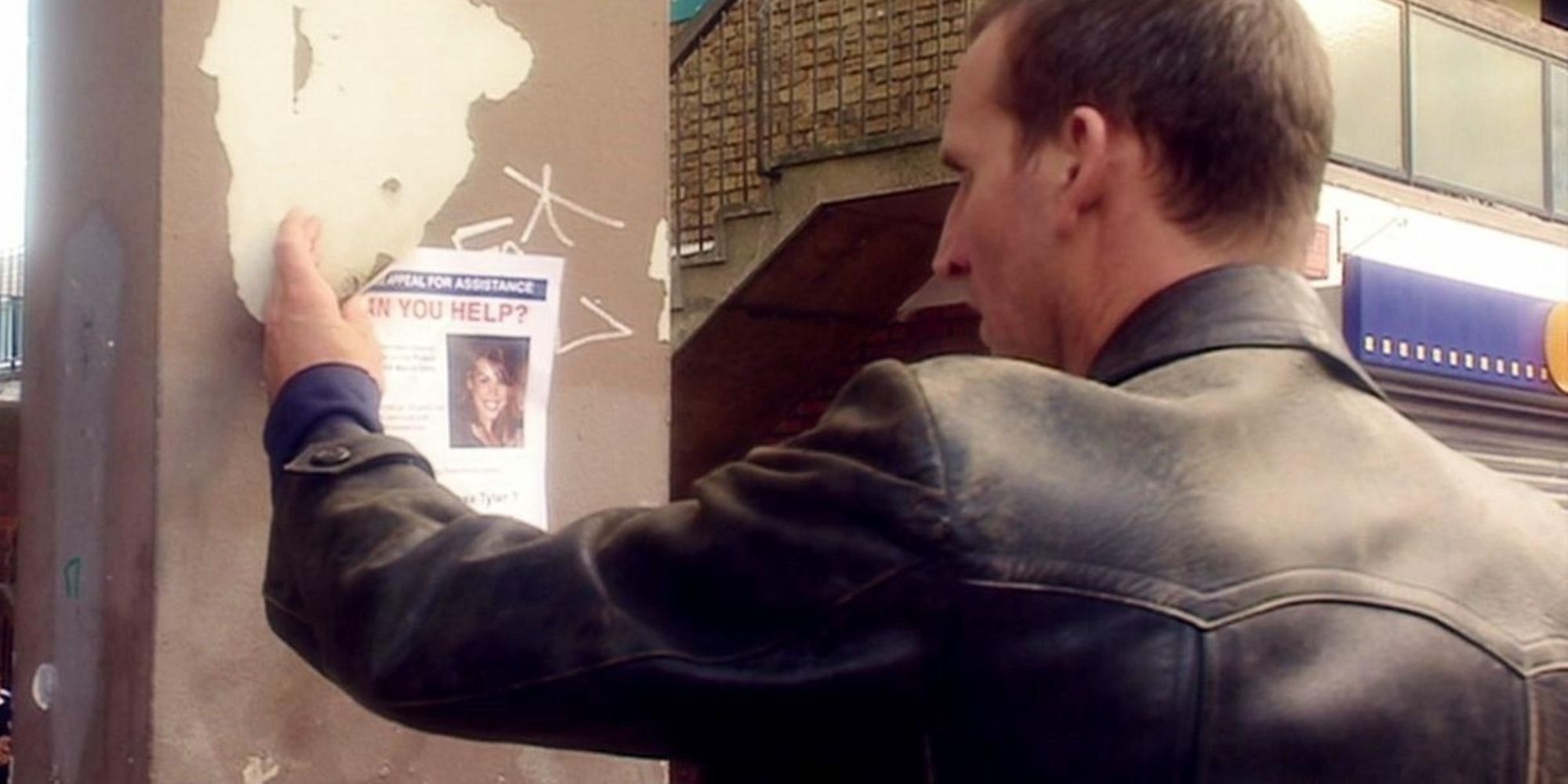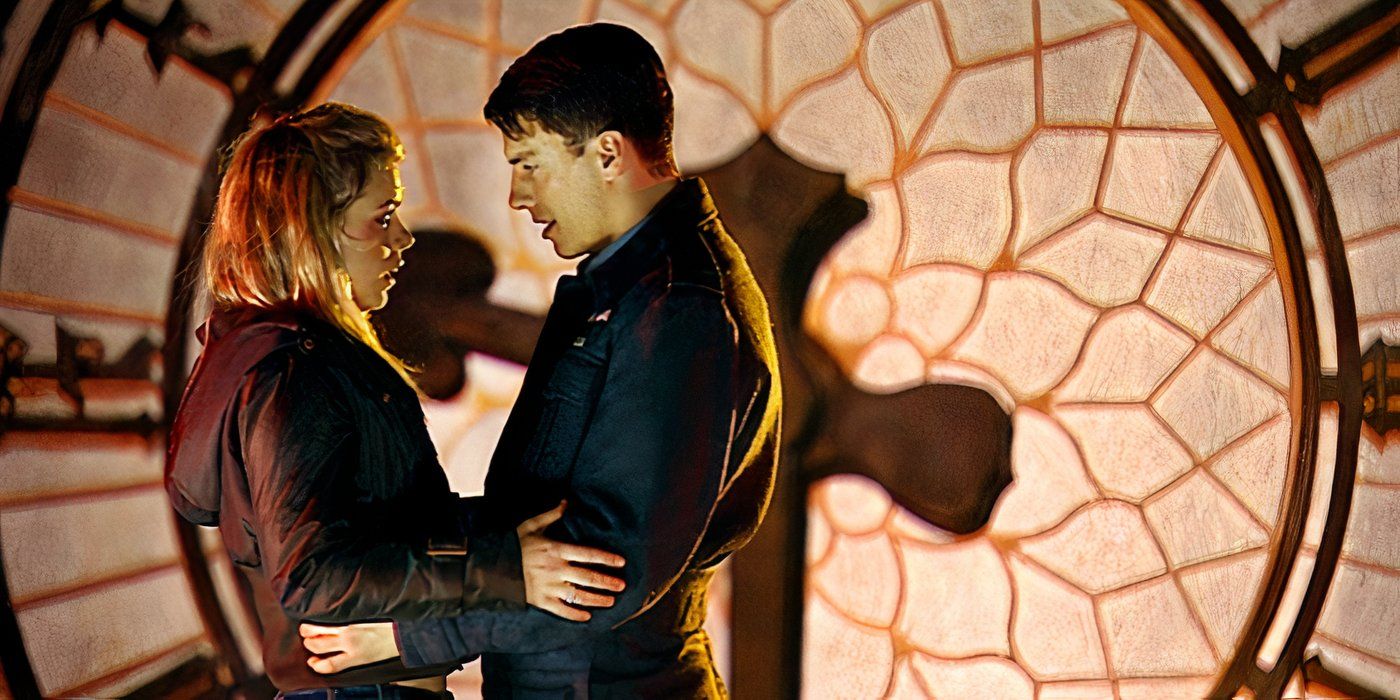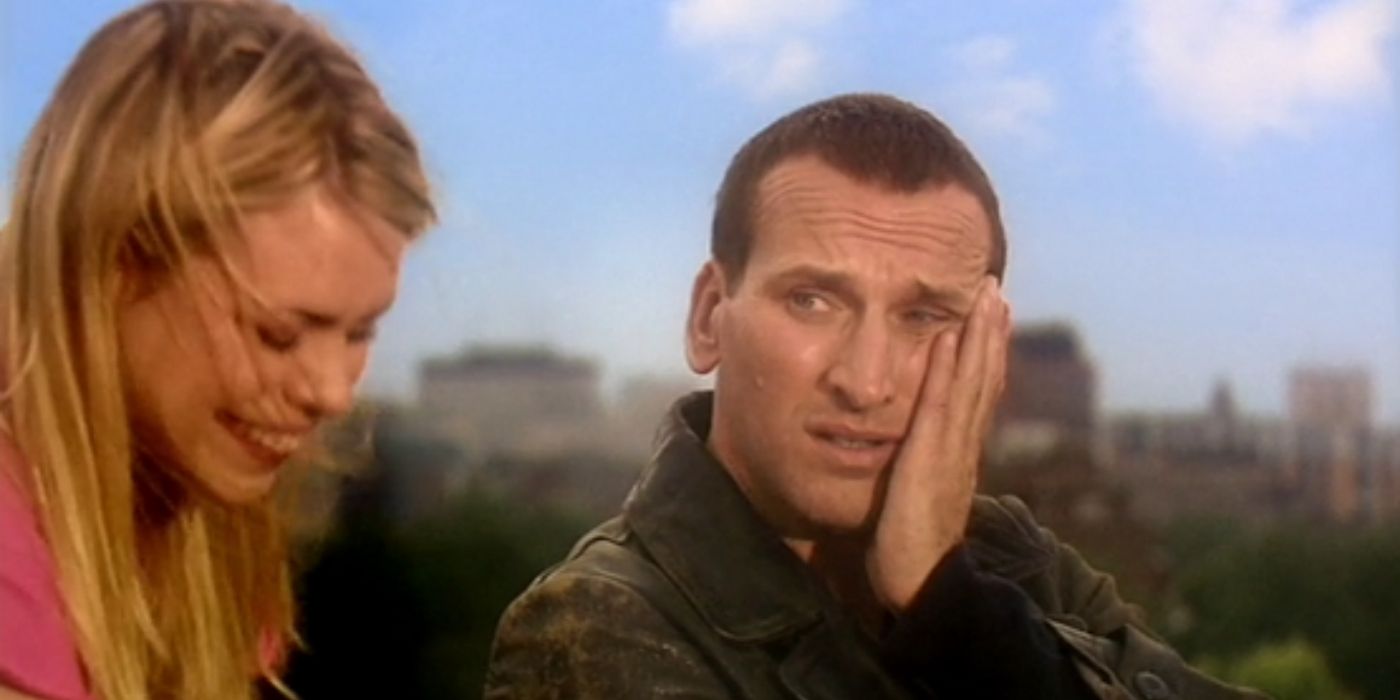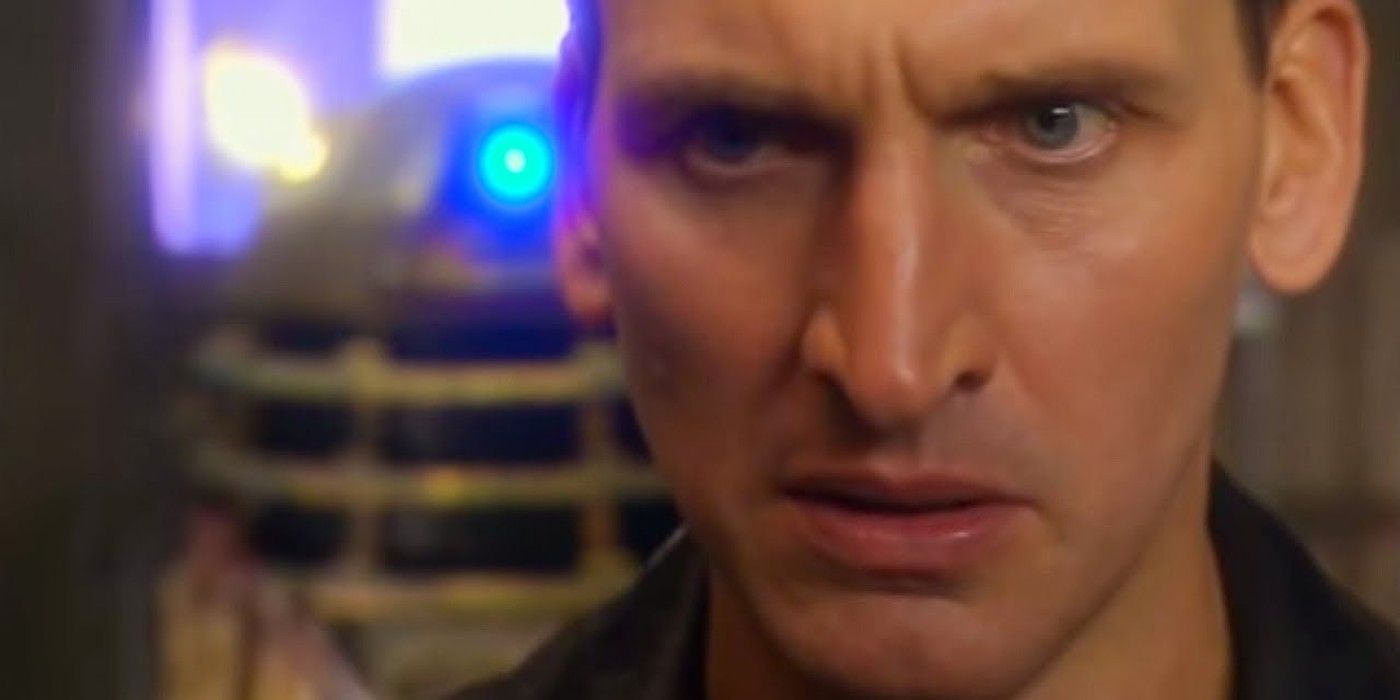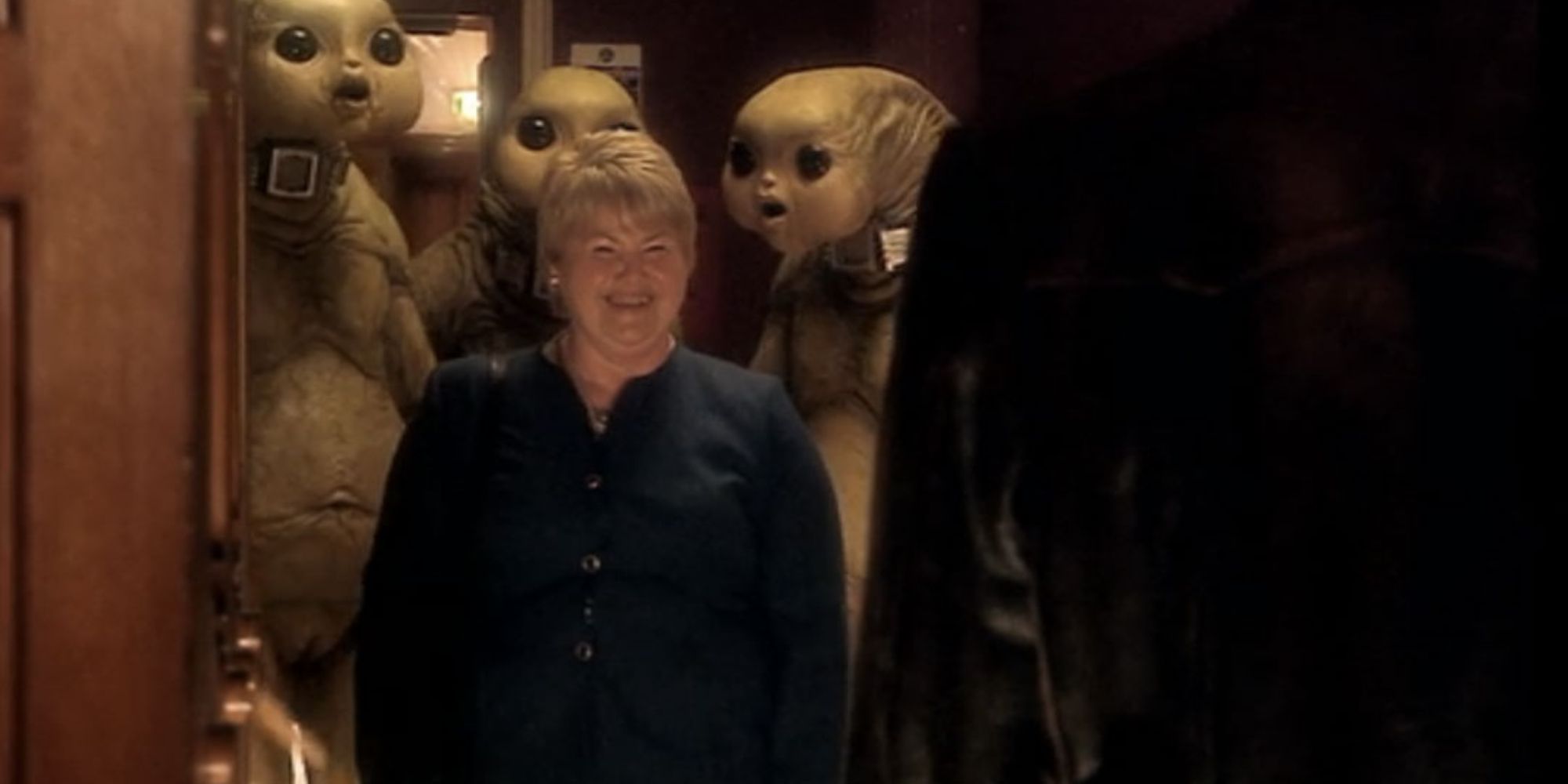
Doctor Who’s Christopher Eccleston era was fantastic in a lot of ways, but there were some harsh realities. Eccleston only portrayed the Ninth Doctor for 13 episodes back in 2005, but as the face of Doctor Who’s new era, he quickly caught the attention of old and new viewers alike.
It’s worth noting that identifying the harsh realities of Doctor Who season 1 doesn’t mean it’s terrible or deserves heavy criticism. It’s possible to analyze the show and acknowledge parts of it that can be perceived in a somewhat negative light while also still appreciating Doctor Who season 1 for what it is.
Some of the greatest Doctor Who stories of all time came from Christopher Eccleston’s era, but they still had their faults. While many have held Doctor Who season 1 close to their hearts, it wasn’t completely perfect, either.
10
The Doctor Was Wrong For Taking Rose To See Her Father’s Death
Pete Tyler’s Demise In “Father’s Day” Was Far Too Harrowing For Rose To Deal With
The only somewhat Doctor-lite episode of Doctor Who season 1, “Father’s Day,” saw the Doctor take Rose back in time to the day her father, Pete, died. While it wasn’t the Doctor’s fault that the Reapers appeared and stole him away for a chunk of the episode, he really should’ve thought things through first.
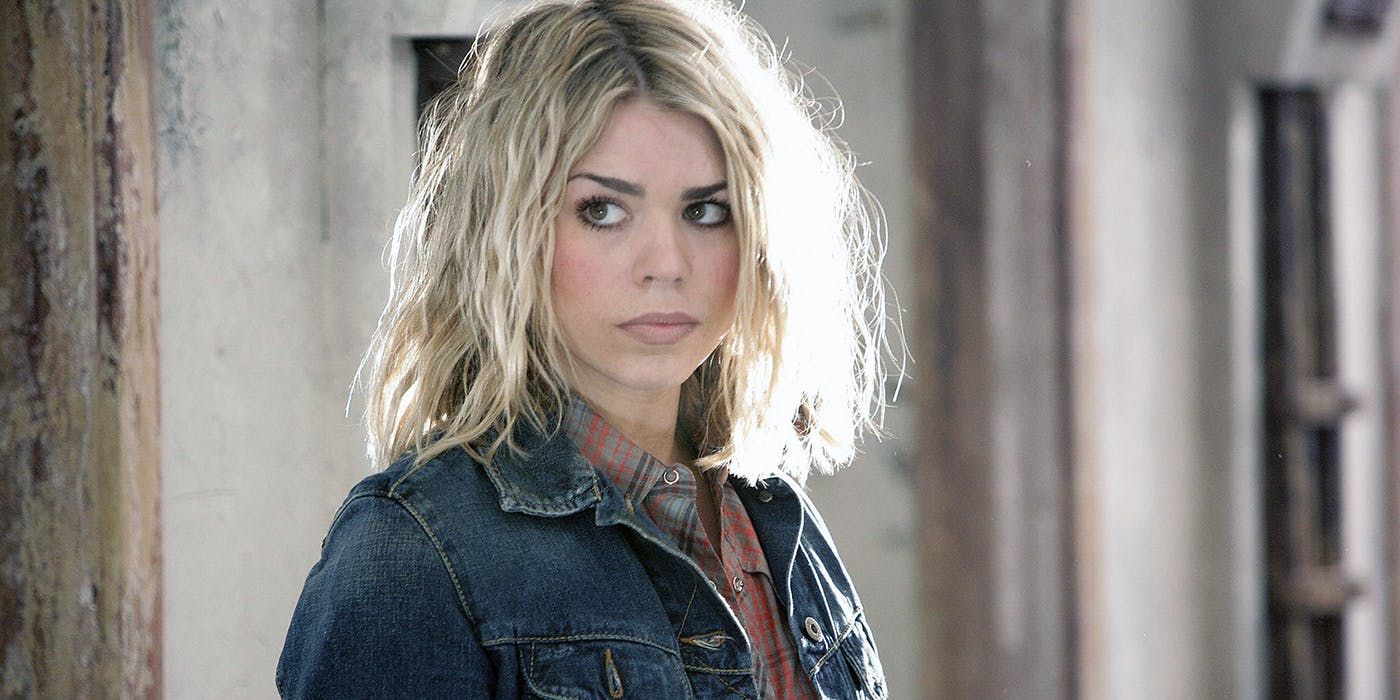
Related
8 Great Billie Piper Episodes To Rewatch After Her Shocking Doctor Who Return
Billie Piper made a shocking return at the end of Doctor Who season 15, making it the perfect time to rewatch these great episodes starring the actor.
From her first failed attempt to rush to Pete’s side before he passed away, it was clear that Rose was ill-equipped to deal with the situation. Of course, she was only 19, wanted to be brave, and didn’t want Pete to die on his own. The Doctor should’ve realized that it was realistically too much for her to handle.
While “Father’s Day” shaped her psyche going forward, and it arguably made Rose a better companion because she now understood the downsides of time travel, it was still a mistake. “Father’s Day” was undoubtedly a fantastic Rose-focused episode of Doctor Who, but the Doctor was also out of practice with a human companion. He really should’ve taken a moment before he agreed.
9
The Doctor Treated Mickey Poorly For No Reason
The Time Lord Could’ve Had More Respect & Time For His Companion’s Boyfriend
Even before the romantic undertones of the Doctor’s relationship with his companion became fully apparent, the Time Lord was a threat to Rose and Mickey’s relationship in Doctor Who. From episode 1, the Doctor immediately dismissed Mickey when it came to pretty much everything.
Although the Doctor gained more respect for Rose’s boyfriend after the events of “World War Three,” when Mickey returned in “Boom Town,” all of that progress seemingly disappeared. It can be argued that, because of the Time War, the Doctor was a bit rusty when it came to communicating with humans. But at the same time, he didn’t have issues with Rose.
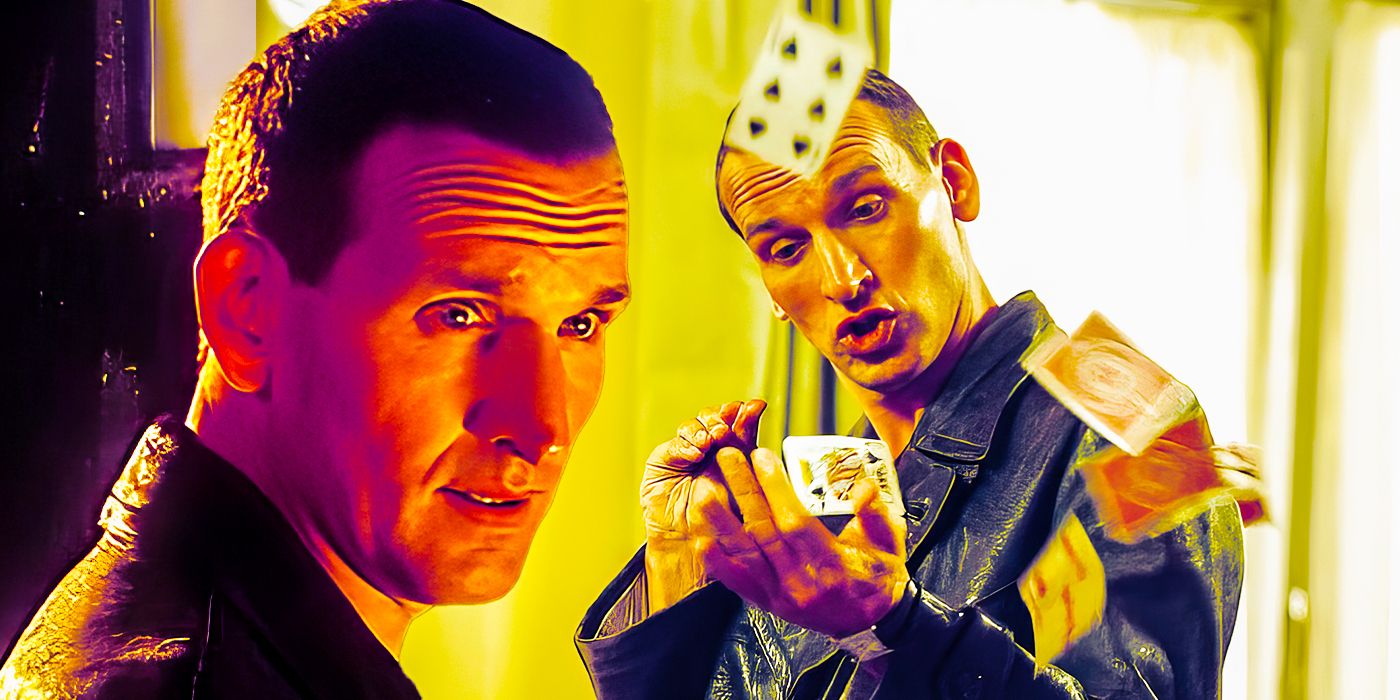
Related
Doctor Who’s FIRST Time War Before The Reboot Explained
Though the Time War may be the centerpiece of all of modern Doctor Who canon, the writers learned a lot from mistakes made in another Time War plot.
While Mickey wasn’t exactly an action hero in season 1, he later proved himself more than capable. Mickey’s feelings about the Doctor throughout season 1 were totally valid, too; the Time Lord whisked his girlfriend away, and Mickey was accused of killing her, so the Doctor could’ve been a bit more understanding. Thankfully, the Tenth Doctor’s relationship with Mickey Smith was better.
8
Doctor Who Season 1 Was A Product Of Its Time
Christopher Eccleston’s Doctor Who Season Was Very Noughties
Between the dialogue, set and costume designs from the present day, and the stories, Doctor Who season 1 was absolutely a product of the 2000s. In fact, those who spent their childhood watching Doctor Who season 1 when it aired, or simply grew up in this era, will likely be surprised at how many 2000s references there are.
For example, in “Bad Wolf,” there were the Anne Droid, Trine-E, and Zu-Zana bots, and the Doctor got stuck in a Big Brother house. “Rose” established the new era of Doctor Who brilliantly, and the imagery of Rose’s day-to-day life screamed the 2000s (not to mention the fact her phone had a removable battery).
Anne Droid is a reference to Anne Robinson, who famously hosted the original version of The Weakest Link in the UK from 2000 to 2012. The Trine-E and Zu-Zana bots are a nod to Trinny Woodall and Susannah Constantine, two famous British fashion personalities who hosted the TV show What Not To Wear in the early 2000s.
While some audiences today might not understand the noughties references in Doctor Who season 1, this actually worked in the show’s favor. It explained the world Rose came from, and it helped viewers understand just what the world’s climate was like at that time, even if it was in the context of Doctor Who.
7
The Monsters & Aliens Were Underwhelming
Doctor Who’s Season 1 Villains Were Comical But Not Scary
In later installments, Doctor Who’s villains were a lot more developed. However, in season 1, the show was still finding its feet. Unfortunately, this resulted in season 1’s aliens being rather unimpressive compared to later antagonists, like the Weeping Angels. The Slitheen, for example, were an interesting addition to the franchise, but they were clearly designed with children in mind.
The last human, Cassandra, lacked any real depth until her backstory was expanded upon in the season 2 episode “New Earth.”
Additionally, the constant fart jokes got old. The last human, Cassandra, lacked any real depth until her backstory was expanded upon in the season 2 episode “New Earth.” The Jagrafess was essentially a giant lump of alien fat on a ceiling, and there was little else to the Editor’s character than just plain evilness.
Looking back, some of these monster decisions made sense. Russell T Davies was introducing the show to a new generation of audiences after being off the air for over 16 years. While the showrunner wanted to replicate the familiarity of Doctor Who’s classic era, the show also needed to offer something new.
6
The Doctor Failed Adam
Adam Mitchell Was The Worst, But The Doctor Should’ve Fixed Him Before Leaving Him On Earth Again
Adam Mitchell’s Doctor Who story was better after he left the TARDIS, but he only ended up becoming a ruthless villain because of how the Ninth Doctor treated him. In Doctor Who’s extended media, Adam became a tyrant who taunted many incarnations of the Doctor, and he sought revenge against the Time Lord for abandoning him at the end of “The Long Game.”
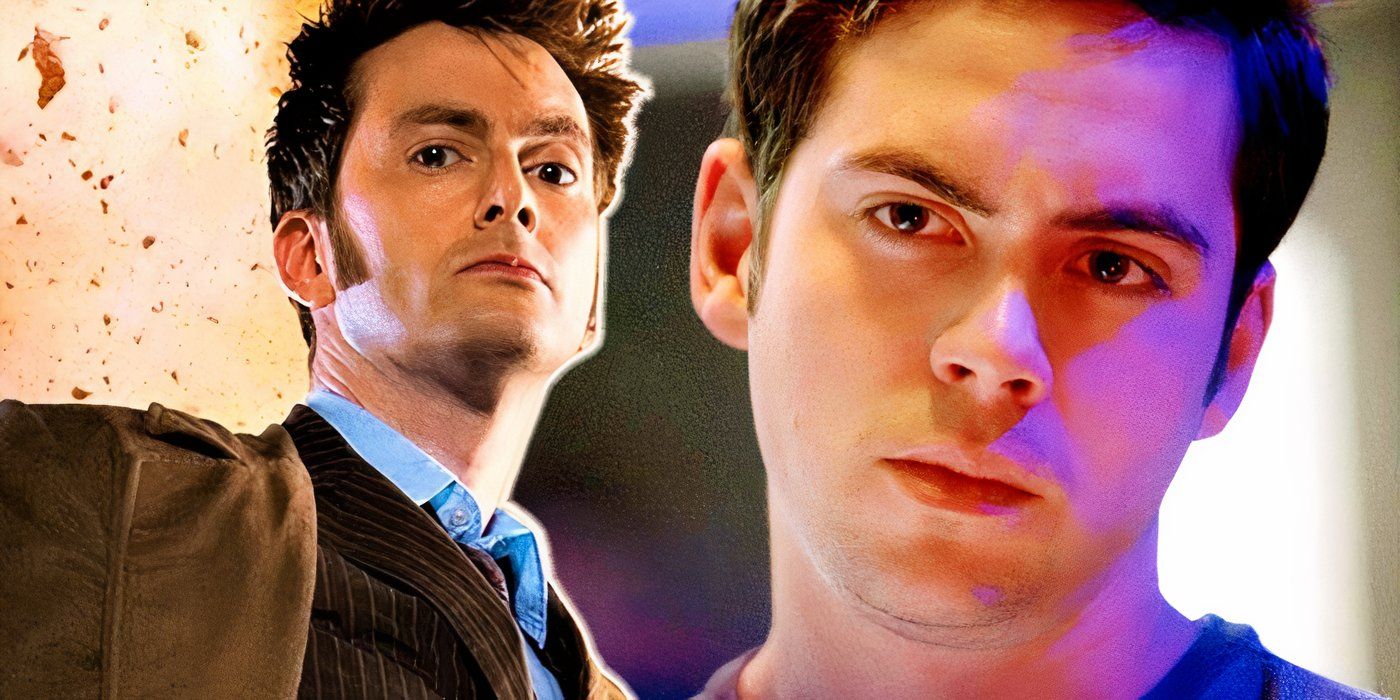
Related
Doctor Who Found a Way to Redeem Its Worst Companion In the Most Unexpected Way
Adam Mitchell has gone down in history as Doctor Who’s most hated companion, but one story released years after his departure amended his legacy.
The Doctor should’ve been more understanding of Adam’s actions. It was Adam’s first time off-planet, let alone outside his time zone, and he was left with no supervision. Getting the brain implant was obviously a bad decision, but the Doctor should’ve taken him somewhere to have it removed before dropping him back on Earth.
It was also greatly irresponsible of the Time Lord to leave Adam with that kind of technology in his skull, and to then tell him to essentially get on with it and to not mess up humanity. Yes, Adam was an annoying character who didn’t offer much to the show’s dynamic, but the Doctor ultimately failed him.
5
The Response To Rose’s Disappearance Didn’t Make Sense
Mickey As A Murder Suspect Didn’t Add Up
When the Doctor and Rose returned to Earth in “Aliens of London,” they discovered the companion had actually been missing for an entire year. However, this storyline didn’t really make sense for Doctor Who, especially in regard to how Mickey was treated in the 12 months Rose was absent.
Mickey was interviewed by the police several times and suspected of murder. But surely he would’ve mentioned the TARDIS to them, and at that point, UNIT should’ve stepped in. Both UNIT and Torchwood kept a close eye on those linked to the Doctor, and with a quick check of some CCTV, one of the organizations could’ve swiftly shut down the investigation against Mickey.
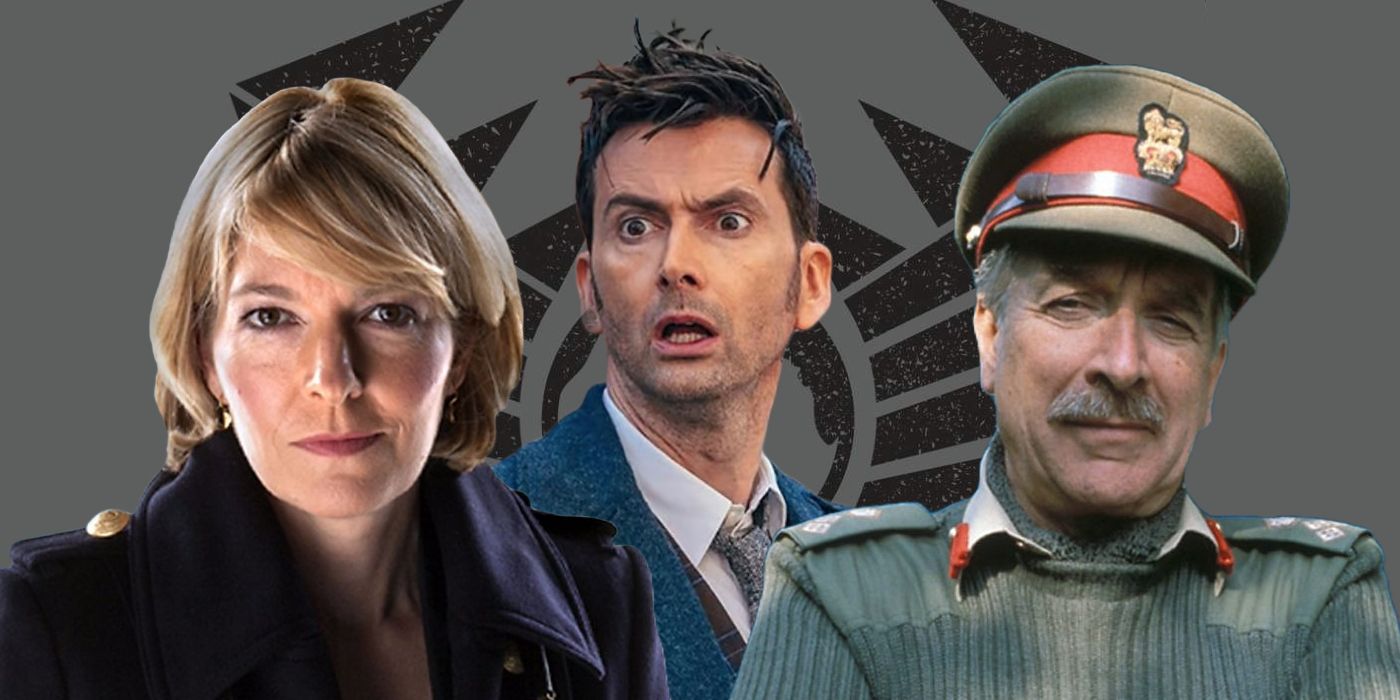
Related
Doctor Who’s UNIT: Origins & History With The Doctor Explained
A military organization dedicated to protecting the Earth from alien threats, UNIT has been part of Doctor Who lore for a very long time.
There was also Clive from “Rose,” and while the police likely wouldn’t have entertained the man’s supposed conspiracy theories, he could’ve tried to spot mentions of Rose throughout history alongside the Doctor. However, the fact Jackie and Mickey let Rose leave again (albeit reluctantly) days after her return was strange, especially as they knew she could vanish for years at a time.
4
Jack’s Character Was Too Much Of A Caricature In Doctor Who Season 1
Captain Jack Harkness’ Character Was Basically Limited To Dirty Jokes & Looking Good
Captain Jack Harkness’ character development in later installments of the show — and in his Doctor Who TV spinoff, Torchwood — was far better than in season 1. Although it can once again be argued that Doctor Who season 1 was the modern era’s starting point, and so had some teething problems, Jack lacked proper characterization.
Other than Jack losing two years of his memories at the hands of the Time Agency, we don’t really learn that much about the character in season 1.
Other than Jack losing two years of his memories at the hands of the Time Agency, we don’t really learn that much about the character in season 1. Jack’s main purpose was to be a dashing hero who also had experience with time travel and the universe, but he wasn’t as impressive as the Doctor.
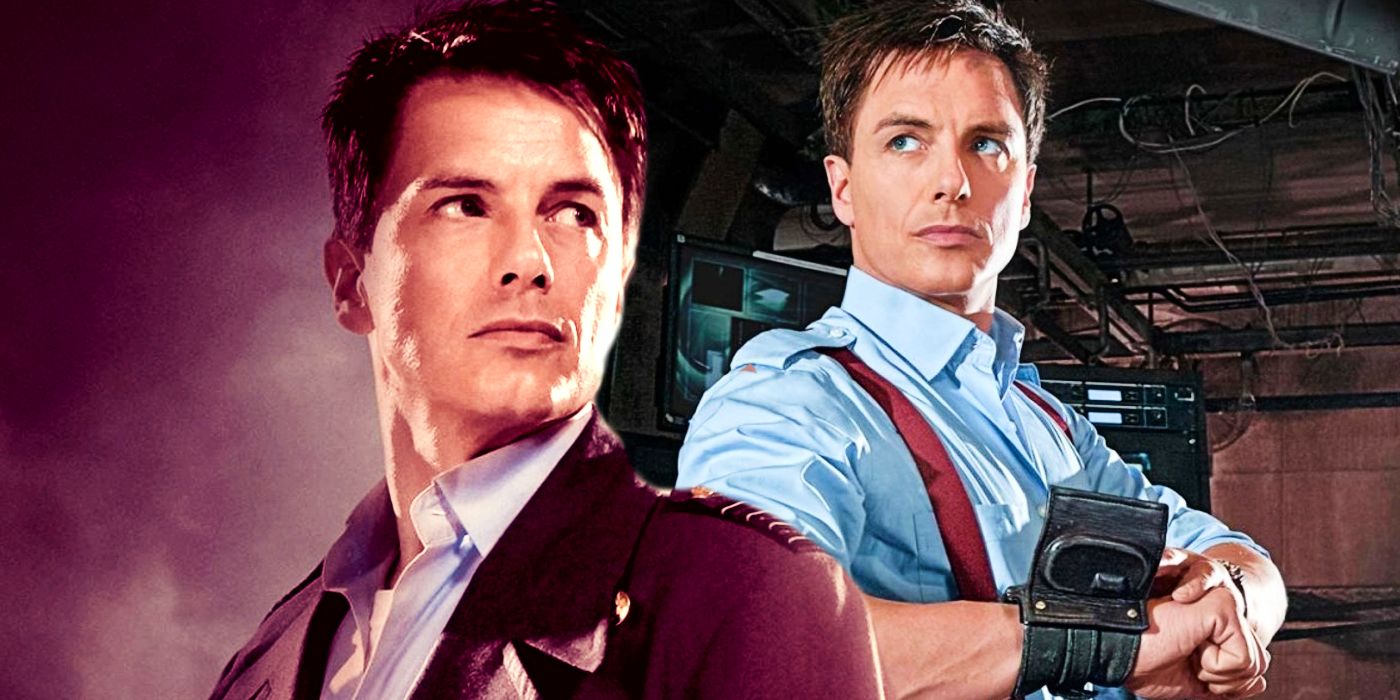
Related
Doctor Who: Why John Barrowman’s Captain Jack Won’t Be Returning
John Barrowman starred as Captain Jack in Doctor Who and Torchwood, but historic allegations mean the character won’t be returning anytime soon.
He had many comical and endearing moments, but Jack’s first five episodes of Doctor Who only hinted at the more complex side of his character, and the show failed to demonstrate this to audiences properly. Jack relied on sexualized jokes more than anything else, and while I appreciate what a diverse character he was at the time, it’s uncomfortable to watch now.
3
Other Than A Few Inappropriate Jokes, Doctor Who Season 1 Has Actually Aged Relatively Well
Despite Being 20 Years Old, Doctor Who Season 1 Could’ve Aged A Lot Worse
Upon rewatching Doctor Who season 1, some of the jokes were a little out of touch. Rose calling the Doctor “gay” for being slapped by Jackie wouldn’t work today, but these episodes were also a product of their time. However, other than the odd bit of dialogue, Doctor Who season 1 has aged pretty well.
This new era of Doctor Who was far more open about sexuality, race, and gender. Doctor Who has always been forward-thinking, even back in the classic era, but as first attempts at a TV season go, the modern era’s beginning was very strong. While the families of companions did appear in the classic era, the introduction of Jackie Tyler was an interesting change of pace.
Jackie represented something in Doctor Who that many children and their parents could relate to.
As a single mother and a widow, Jackie represented something in Doctor Who that many children and their parents could relate to. This allowed audiences to connect even more with the companion, and it provided a more detailed picture of how traveling with the Doctor would impact those around them.
The Ninth Doctor’s era was undoubtedly cheesy and cringe-worthy at times, but that doesn’t mean it feels out of place now. Thankfully, Doctor Who season 1 has aged well in the areas it counts the most.
2
The Ninth Doctor Was Easily The Most Developed Incarnation Of The Time Lord
No Other Doctor, Before Or Since, Has Been As Complex As Christopher Eccleston’s
While the Ninth Doctor has hardly ever been referred to as one of the weakest incarnations of the Doctor in Doctor Who, he has also been massively underappreciated over the years. In just 13 episodes, Christopher Eccleston provided audiences with one of the most layered and complex Doctors we’ve ever seen.
The Ninth Doctor could somehow be both lighthearted and dark at the same time. His trauma over the Time War and the horrors he faced made him a truly endearing character, but within a split second, he was capable of becoming a non-stop grinning, enthusiastic alien with a huge appreciation for the universe.
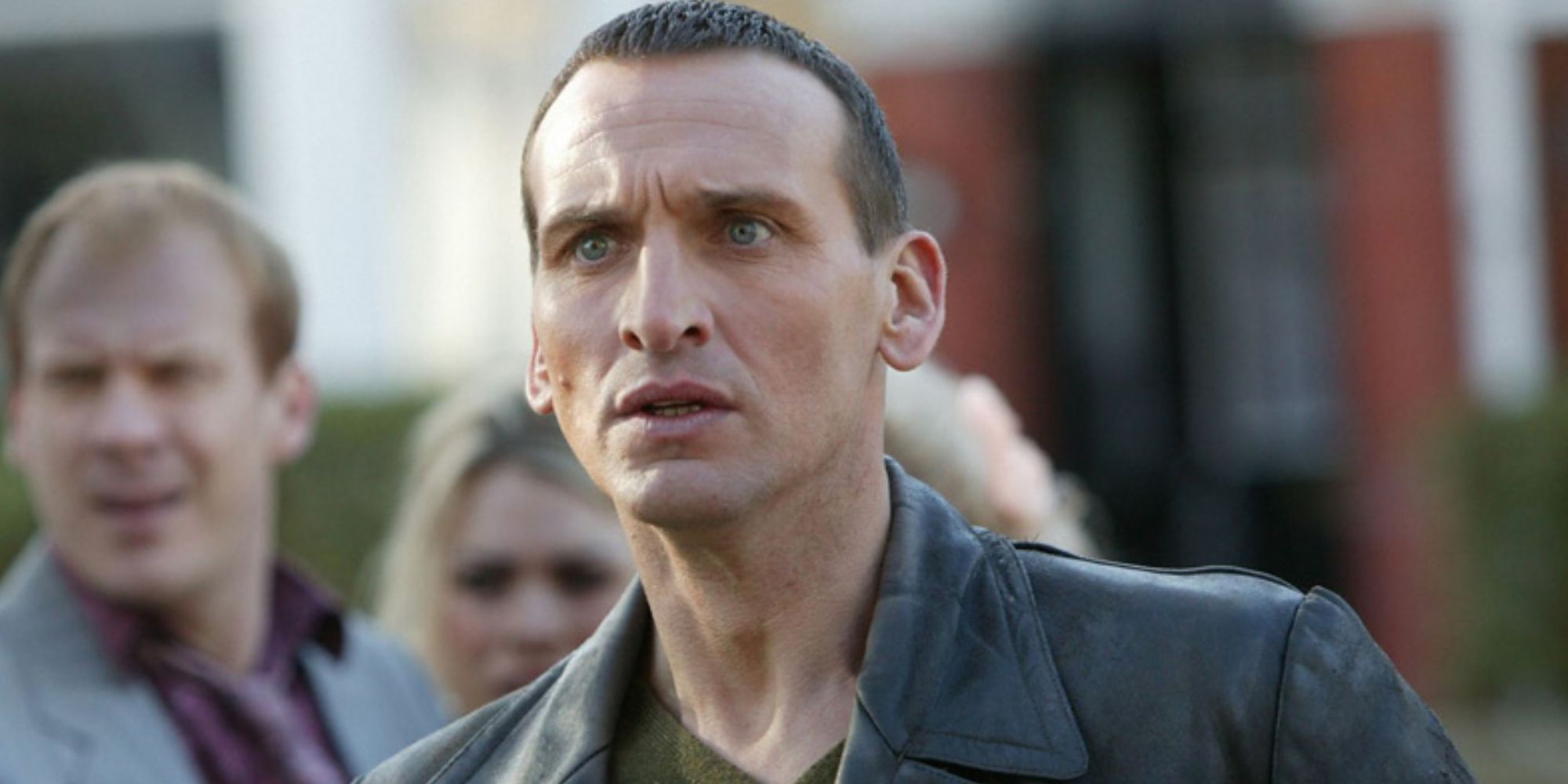
Related
Doctor Who Made Its Biggest Mistake 20 Years Ago
When Doctor Who returned to screens with the modern era in 2005, the show quickly made its biggest mistake, and it’s one that still haunts audiences.
There hasn’t been another Doctor who has achieved this kind of personality balance in quite the same way. Every Doctor, but especially those from the modern era, has brilliantly jumped between emotional states when the occasion called for it. However, the Ninth Doctor particularly stood out. The Ninth Doctor set up Doctor Who’s modern era for success and did it in only one season.
1
The Slitheen Two-Parter Wasn’t As Bad As Audiences Remember
“Aliens Of London” & “World War Three” Were Actually Solid Episodes Of Doctor Who
The Doctor Who two-part story “Aliens of London” and “World War Three” has generally been labelled as the worst of season 1. However, upon rewatching, they weren’t actually that bad. They actually had a lot going for them. If you suspend your disbelief and ignore Slitheen’s childish character design and cringy fart jokes, you’ll find the two-parter could be a lot worse.
|
All 13 Episodes Of Doctor Who Season 1 Ranking (According To IMDb – July 2025) |
|
|---|---|
|
Episode |
IMDb Ranking |
|
Season 1, Episode 1: “Rose” |
7.5/10 |
|
Season 1, Episode 2: “The End of the World” |
7.5/10 |
|
Season 1, Episode 3: “The Unquiet Dead” |
7.4/10 |
|
Season 1, Episode 4: “Aliens of London” |
6.9/10 |
|
Season 1, Episode 5: “World War Three” |
6.9/10 |
|
Season 1, Episode 6: “Dalek” |
8.6/10 |
|
Season 1, Episode 7: “The Long Game” |
7.0/10 |
|
Season 1, Episode 8: “Father’s Day” |
8.3/10 |
|
Season 1, Episode 9: “The Empty Child” |
9.0/10 |
|
Season 1, Episode 10: “The Doctor Dances” |
9.0/10 |
|
Season 1, Episode 11: “Boom Town” |
7.1/10 |
|
Season 1, Episode 12: “Bad Wolf” |
8.6/10 |
|
Season 1, Episode 13: “The Parting of the Ways” |
9.0/10 |
The story was engaging from the very start, and even when it felt like a lull in the narrative was approaching, Doctor Who found a way to keep audiences interested. For example, Rose had vanished for a year, a giant spaceship flew over London, and humanity made its first contact with aliens. Even the Slitheen’s backstory was layered and intriguing.
Unlike other installments of Doctor Who, this two-parter did a fantastic job at explaining why the aliens were on Earth and what their ultimate goal was. It was simple: the Slitheen wanted to destroy Earth and sell the leftover chunks for fuel and a profit. Even so, this resulted in a very strong story.
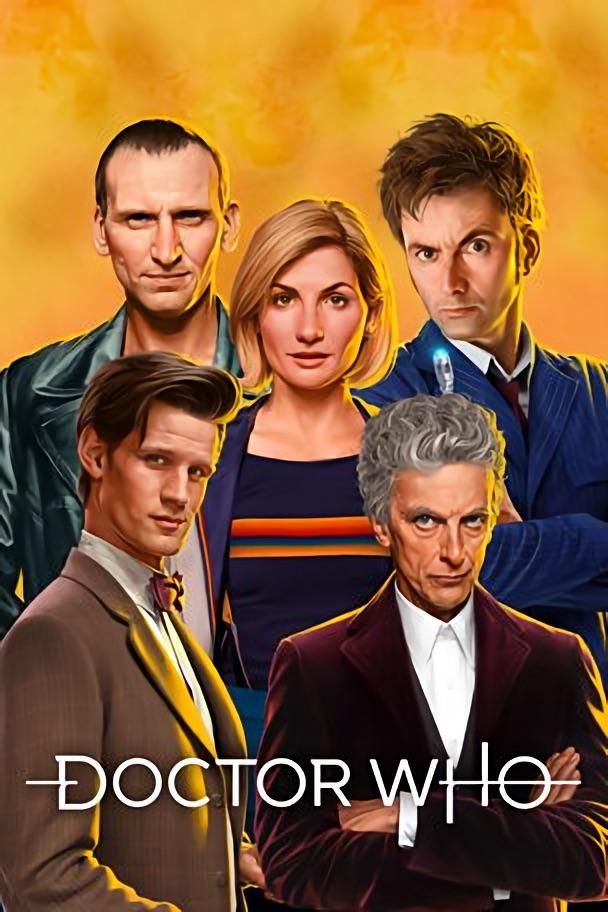
Doctor Who
- Release Date
-
2005 – 2022-00-00
- Directors
-
Graeme Harper, Euros Lyn, Douglas Mackinnon, Jamie Magnus Stone, Charles Palmer, Rachel Talalay, Joe Ahearne, James Strong, Jamie Childs, Saul Metzstein, Toby Haynes, Wayne Che Yip, Nick Hurran, Richard Clark, James Hawes, Daniel Nettheim, Colin Teague, Keith Boak, Azhur Saleem, Adam Smith, Andrew Gunn, Nida Manzoor, Lawrence Gough, Paul Murphy
- Writers
-
Steven Moffat, Russell T. Davies
-

Jodie Whittaker
The Doctor
-

